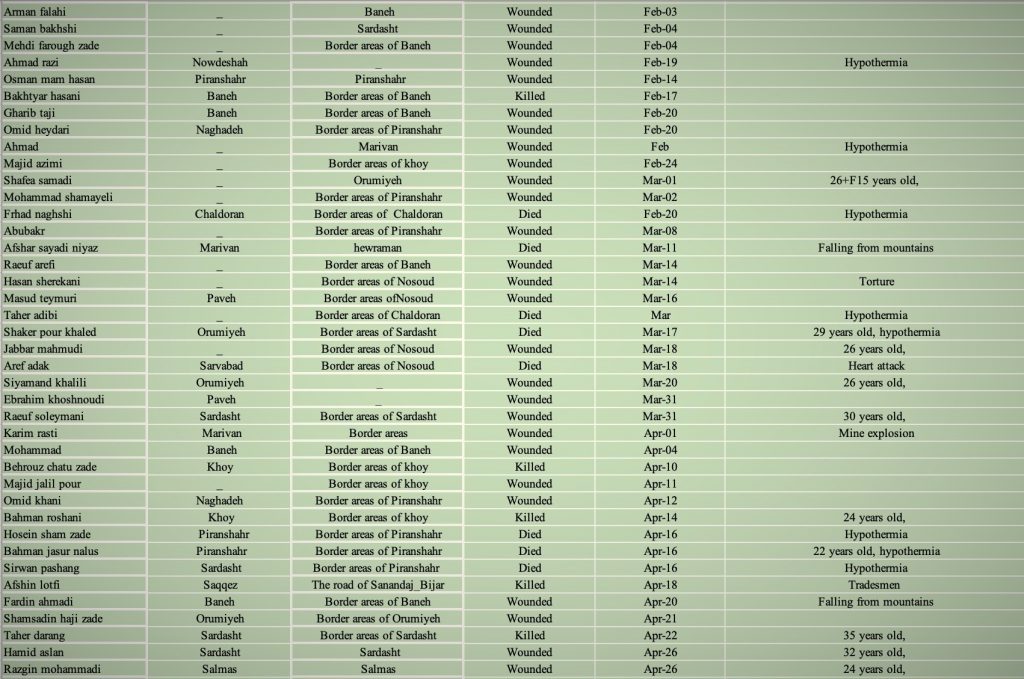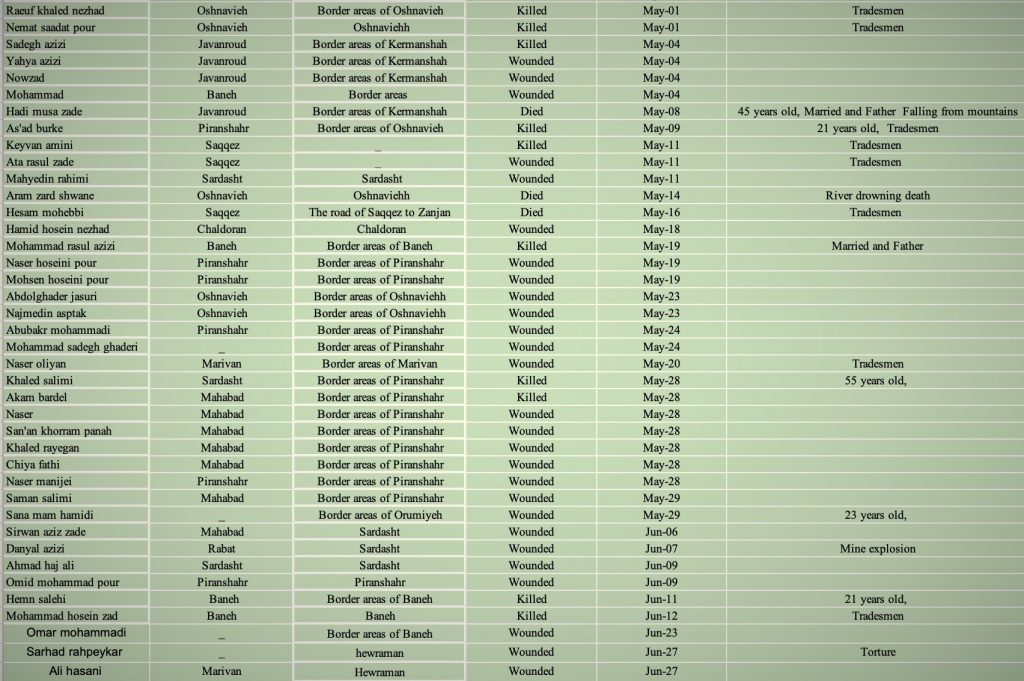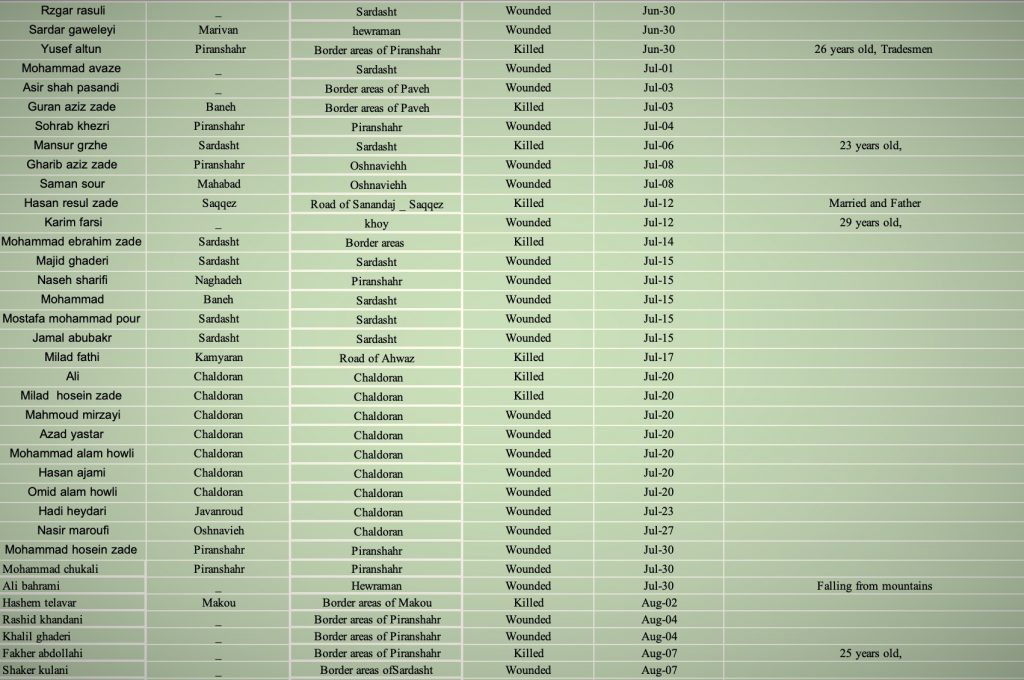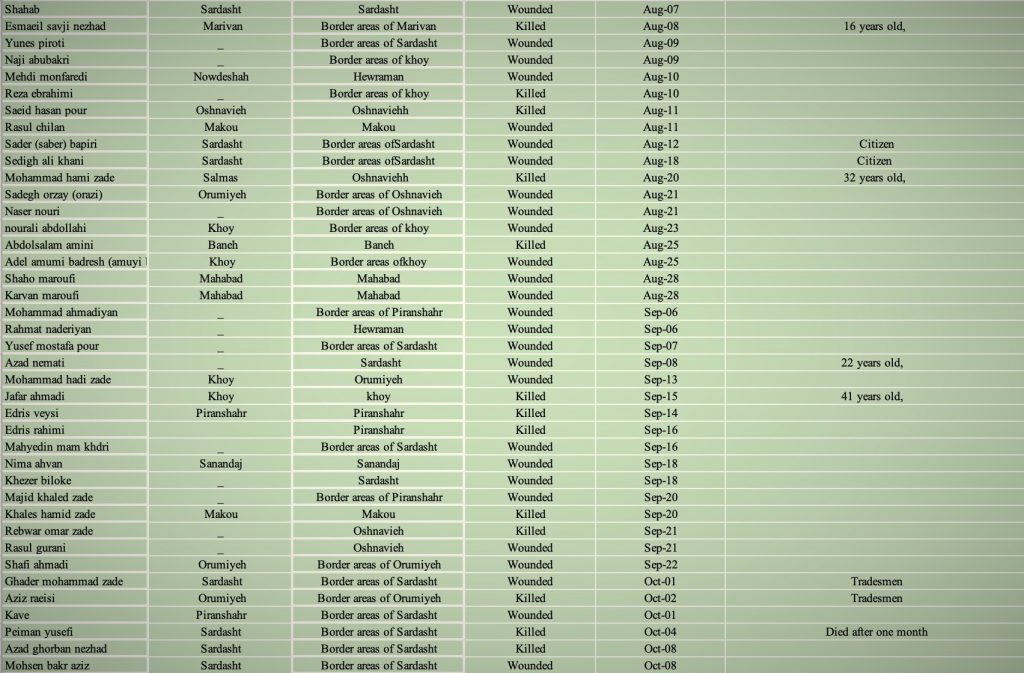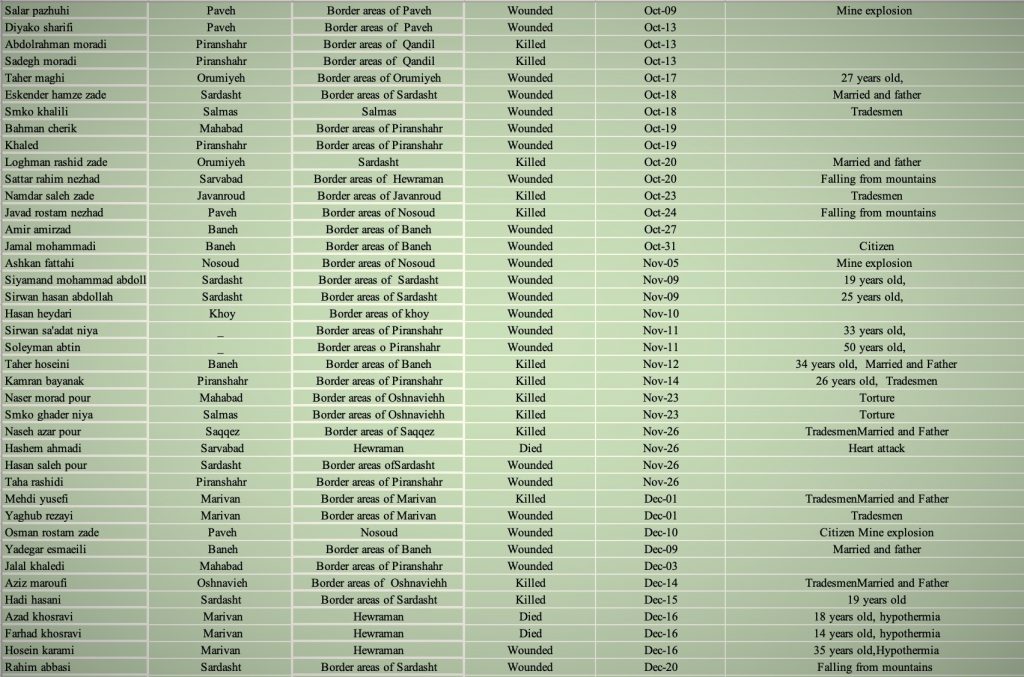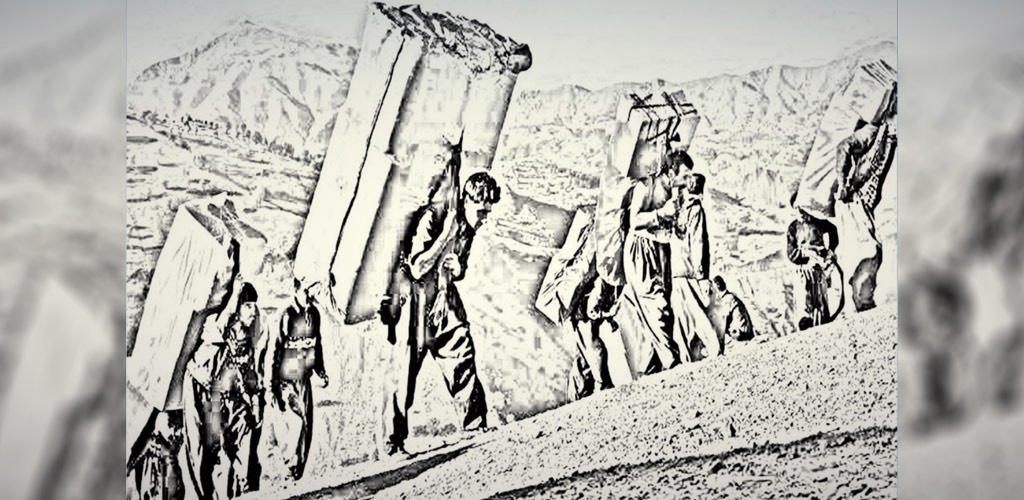Paris, January 05, 2020 – The Kurdistan Human Rights Network (KHRN) announced that 79 Kurdish border porters –known as Kolbar- and tradesmen have been killed and another 66 have been injured by the Islamic Republic of Iran’s military forces, or due to natural disasters along the Kolbari routes in 2019.
According to the statistics compiled by the KHRN, 57 people were killed by direct shootings of the Iranian military and border guards, and 22 others were killed in accidents such as falling from altitude, avalanche collisions, road accidents during police chases and mine explosions.
“As in previous years, the systematic killing of the Kurdish Kolbars continues despite the pressure of public in Kurdistan and Iran to stop these killings. Despite the high unemployment rate in Kurdistan and the general increase of the inflation rate, the Iranian Government continues to kill Kolbars without providing job alternatives for the border workers,” said Rabin Rahmani, a member of the managerial board of KHRN.
“Since the beginning of its ruling, the Islamic Republic of Iran has treated the political, social, cultural and economic matters in Kurdistan of Iran as a security issue. The socio-economic phenomenon of Kolbari is one of these matters even though it can be solved by creating alternative job opportunities,” added Rahmani.
Rahmani further elaborated that targeting the people who are forced to choose this hard work to survive the severe economic situation in Kurdistan is an indication of “organized violence and the government irresponsibility towards citizens of the country.”
The systematic killing of Kolbars continues while the representative of Sardasht and Piranshahr in the parliament admitted last week that only five percent of the smuggled goods had gone through Kolbari’s passage, and the remaining 95.5% had gone through the official ways by container passages. In other words, the government confronts Kolbars instead of dealing with the main sources of smuggling goods.
Moreover, Rahmani referred to the lack of responsibility of the judiciary to prosecute those responsible for the deaths, as well as the failure of the legislation prohibiting to prevent military forces from continuing the killings of kolbars.
“In the past year, troops in the Khoy and Sardasht border areas have left at least three injured Kolbars in the dark after targeting them. They died after several hours of bleeding due to the delay in being transported to the hospital.” said Rahmani.
In 2019, the Iranian public in general, and the Kurdish society in particular, questioned the Iranian Government’s use of violence against the Kolbars, especially during killing Ismail Sawjinejad 16-years-old Kolbar by direct shooting and death of Farhad Khosrawi 14 and Azad Khosrawi 17 brothers in snow in December 2019.

